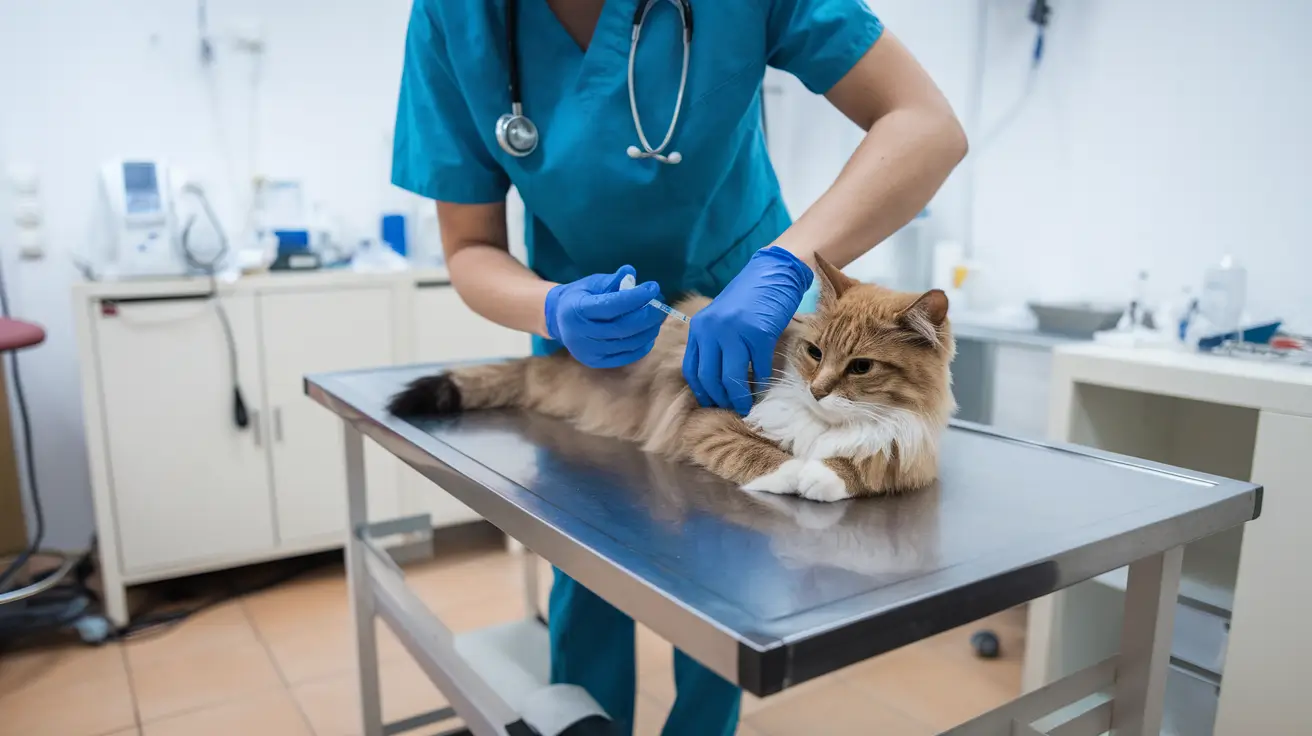Introduction to Feline Vaccination
Vaccinations are a cornerstone of feline healthcare, playing a crucial role in preventing serious diseases and ensuring the well-being of cats. The importance of tailored preventive care cannot be overstated, as each cat's vaccination needs may vary based on lifestyle and risk factors. The Feline Vaccination Advisory Panel is instrumental in this process, providing science-based recommendations that guide veterinarians and pet owners in making informed decisions about feline vaccinations. Their guidelines are widely respected and form the foundation of effective feline healthcare strategies.
Understanding Core Vaccines
Core vaccines are deemed essential for all cats, regardless of their living conditions or geographic location. These vaccines protect against highly infectious and potentially lethal diseases, ensuring a baseline level of health and safety for every feline.
Rabies Vaccine
The rabies vaccine is a critical component of feline vaccination protocols due to its legal and health implications. Rabies is a zoonotic disease, meaning it can be transmitted from animals to humans, and it is almost universally fatal once symptoms appear. Although cats are not natural carriers, they can contract the virus from infected mammals and subsequently pose a risk to both other animals and humans. As a result, rabies vaccination is required by law in most regions and is considered a core vaccine for all pet cats.
FVRCP Vaccine
The FVRCP vaccine is a combination vaccine that protects against three significant feline diseases:
- Feline Rhinotracheitis Virus/Herpesvirus 1 (FVR/FHV-1): This virus causes severe upper respiratory infections, leading to symptoms such as sneezing, nasal congestion, and conjunctivitis. It can also cause oral ulceration and pneumonia. After the initial infection, the virus can become latent and reactivate during stress, causing recurrent symptoms.
- Feline Calicivirus (FCV): FCV includes various strains that cause upper respiratory issues and oral ulcerations. It is associated with chronic gingivitis/stomatitis and can lead to more severe conditions like hepatitis and even death in some cases.
- Feline Panleukopenia (FPV): Also known as feline parvovirus, this highly infectious disease has a high mortality rate in kittens. It results in symptoms such as decreased energy, vomiting, and diarrhea, and severely compromises the immune system by reducing white blood cell count.
Exploring Non-Core Vaccines
Non-core vaccines are recommended based on specific risk factors and are not universally required. They offer additional protection in situations where a cat's lifestyle or environment presents unique exposure risks.
Bordetella Vaccine
The Bordetella vaccine targets Bordetella bronchiseptica, a bacterium responsible for upper respiratory infections commonly known as kennel cough. This vaccine is particularly relevant for cats in multi-cat environments, such as catteries or households with frequent feline interactions, where the risk of transmission is higher.
Chlamydia Vaccine
The Chlamydia felis vaccine provides protection against infections that cause conjunctivitis and upper respiratory issues. It is recommended for cats in communal living situations to mitigate the risk of disease spread through close contact.
The Importance of Individualized Risk Assessments
Individualized risk assessments are vital for creating tailored vaccination plans. By evaluating a cat's lifestyle, environment, and potential exposure to diseases, veterinarians can recommend the most appropriate vaccination schedule. Factors such as travel, boarding, and interactions with other cats should be considered to ensure comprehensive protection.
Collaborative Approach to Vaccination
A collaborative effort among the veterinary healthcare team, pet owners, and their cats is essential for effective vaccine management. Educating clients about the importance of vaccinations, understanding zoonotic diseases, and adhering to hospital policies and state laws are all critical components of this process. By working together, the veterinary team can provide optimal care and guidance for feline vaccination protocols.
Monitoring and Managing Adverse Reactions
While vaccines are generally safe, adverse reactions can occur. These reactions range from mild symptoms like swelling at the injection site to more severe issues. It is crucial to monitor cats closely after vaccination and report any concerning symptoms to a veterinarian promptly to ensure their safety and well-being.
Conclusion: Ensuring Feline Health Through Vaccination
In summary, vaccinations are a fundamental aspect of feline healthcare, protecting against both core and non-core diseases. By conducting individualized risk assessments and collaborating with veterinary professionals, cat owners can ensure their pets receive the most appropriate vaccinations. The role of the veterinary team in educating and guiding pet owners is crucial in safeguarding feline health and preventing the spread of infectious diseases.
Call to Action
Cat owners are encouraged to consult with their veterinarians to develop a vaccination plan tailored to their cat's specific needs and lifestyle. By staying informed and proactive, pet owners can contribute significantly to their cat's long-term health and happiness.






